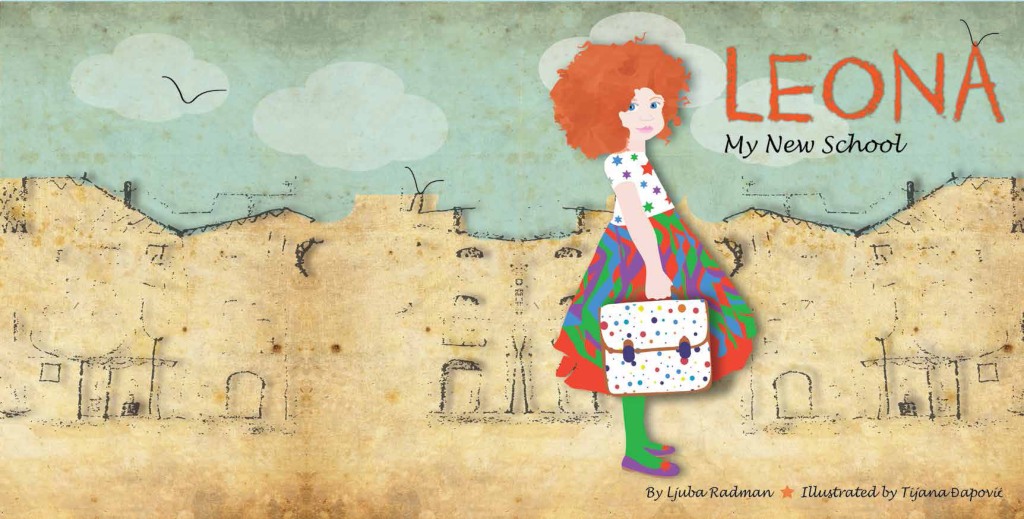From my mid-teens to my mid-twenties, I was an unconditional Pearl Jam fan. I had all their albums, went to their concerts, knew the lyrics to all their songs by heart, and Eddie Vedder’s poster hung on my student room wall. To this day, I admire their body of work. They were the voice of the Western world’s nineties youth, addressing all the uncomfortable truths of that generation. The chorus of their song “Even Flow“, about a homeless man, begins with:
“Even flow, thoughts arrive like butterflies
“Even Flow” by Eddie Vedder and Stone Gossard
He don’t know, so he chases them away.”
I have often remembered this line, as my mind is regularly stormed by thoughts I want to chase away. Lately, I find that in order to stray my mind from unwanted cerebration, I’ve been listening to audio books, podcasts and series to control what populates my brain. This constant influx of content may feed my mind, but at the same time, it tires it and slowly stifles my creativity.
In the Croatian documentary film “Spomenko”, directed by my ex-husband, the exceptional and nonconformist priest, to whom it is dedicated, mentions the importance of solitude in processing all that constitutes our everyday lives.
Our minds need to breathe. They require a break from input in order to create relevant output. And yet, many people cannot handle silence. They go so far as to listen to audio content (whether guided meditations or music) while they sleep. My goal is not to criticise the tools individuals find to cope with whatever is weighing them down. Rather, I wonder if we are not overburdening the brain with never-ending flows of words, thoughts and emotions from the outside in.
Likewise, I am dubious about the overall benefits of brief daily meditations. However helpful, I wonder if they can truly suffice to let the dust of our emotions, encounters, worries and plans settle, which is necessary to try to make sense of it all. As a society, we have been moving faster and faster, and while we are trying to focus on the positive aspects of our existence, we cannot shut out the negative, like we do on our social media profiles. We must learn to live with thoughts that may eat at our brains like bugs. Perhaps we should even welcome them, since countless uneasy questions, worries, sadness or anger, have given birth to an invaluable wealth in art and philosophy over centuries.

The problem now is that, for the first time in history, we have access to an infinite source of distraction and information. This puts us in a position of constant reaction to what we hear and read, as a way to externalise the impact this influx has on us. We are on the receiving end, rather than being the instigators and creators of original thoughts. Whereas welcoming silence and solitude is more challenging in the moment, it brings with it more peace of mind in the long run. And more creativity, too.
As I look out onto the pristine Adriatic Sea, sitting on what was once my grandparents’ terrace, high above the madding crowd, I have made the decision to pause the constant input from my phone. I have taken out the faithful companion that is my notebook and am finally writing again – letting the butterflies back in to fly around my head, come what may. Time to slow down again and just be, and let be. Life is not a long quiet river.

Life is not – nor can it be – a constant source of joy, excitement and gratitude, even when all is well. It is a complex multitude of layers, experiences and emotions, tainted by fears and insecurities, highlighted by joys and serenity. And it is certainly much easier to be offended, complain or be envious of others, than it is to accept what is. But acceptance is necessary at times. As is said in the Serenity Prayer, made famous through its use in AA groups and subsequently in popular culture:
“God, grant me the serenity to accept the things I cannot change,
More about its source here
the courage to change the things I can,
and the wisdom to know the difference.”
Acceptance is not resignation. Rather, it is about letting the dust of the daily hustle and bustle settle, letting the fog of injustice, aggression, excitement and euphoria clear up. Only when this happens can we see more clearly, and act rather than react. Swift reaction may well be essential when you are in danger, but it is usually shortsighted and can ultimately misguide you in any other context.

Quieting the voices in our heads by turning on our phones is in some ways comparable to escaping reality through drugs. And like drugs, the relief from our thoughts and emotions that we get through this content is short-lived. What awaits us at the other end is the same feeling of helplessness or the overwhelmingness of everything. This drives us to continue using our “escape-drug” to remain distracted. Detoxifying your mind by only using your phone when you actually need it may take a few days, but I am noticing the positive effects in me already.
My mind is slowing down, the jumbled puzzle pieces are slowly falling into place, allowing me to breathe and make lucid decisions. As the dust is settling, I can see the green fields with colourful butterflies again. For now, I’m just letting them fly about – until I catch one, when I’m ready.
(Title quote taken from the Pearl Jam song “Even Flow”)
*In memoriam Luka Lovrenčić, cinematographer on “Spomenko” (1978-2015)









































